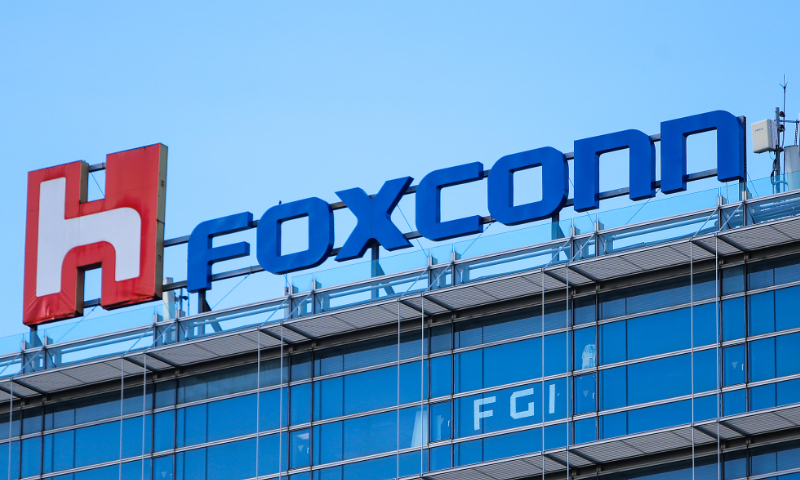
Foxconn Photo: VCG
"Foxconn 'returns' to Chinese mainland." The
mk Hong Kong-based Chinese-language newsweekly Yazhou Zhoukan recently reported, under this theme, about Foxconn's announcement in late July to invest 1 billion yuan ($139 million) in the construction of a new business headquarters building in Zhengzhou, Central China's Henan Province, and that Apple's new iPhone 16 series will still be assembled in China. In fact, even before this report was published, news about "Foxconn and Apple 'coming back'" had been circulating among the insiders. Nothing better represents a company's optimism about a country's economic prospects than real investment. Foxconn's increased investment is a powerful response to "de-Chinaization" of the supply chain and a vote of confidence in the Chinese mainland's business environment.
The previous saying that "Foxconn has left" came largely from the hype of Western media. As multinational companies, it is normal for Apple and Foxconn to make some local adjustments due to changes in global business planning and comparative advantages. Foxconn Chairman Young Liu once said bluntly that having two or more suppliers in any sizable industry is quite normal. He also denied Foxconn's "relocation" to a reporter from the Global Times. When Apple CEO Tim Cook visited China in March this year, he also said that "there's no supply chain in the world that's more critical to us than China." According to the supply chain list released by Apple in April this year, there were 155 factories in the Chinese mainland in the 2023 fiscal year, ranking first in absolute terms. Since they never really "left," how can they "return?"
The discussion surrounding Foxconn's "return" is not so much a matter of reality as it is a game surrounding China's economic confidence. Apple, as the "owner" of the supply chain, and Foxconn, Apple's largest manufacturers, have played an important role in the development of China's mid-to-high-end manufacturing industry represented by mobile phones. Their trends have a certain influence as a weathervane on public opinion.
If you closely examine the previous hype about "Foxconn leaving," you'll find that a lot of things were taken out of context and misinterpreted. For example, Bloomberg claimed that "China's position as factory to the world has shifted from being a win-win for clients and suppliers to a massive risk." Except for those with a "Cold War" mentality, who would consider China's industrial chain and consumer market a "risk?" Isn't that ridiculous? The goal is to support the need of Western politics to "decouple and cut ties" with China and to create buzz for the narratives of "China's economic collapse" and "economic peak."
Why has China been able to attract the most manufacturing investment globally over several decades and develop into the world's leading manufacturing country? The reason is that starting from light industry, China's manufacturing has gradually climbed to the peak of high-end manufacturing, building a complete industrial and supply chain in the process.
China possesses all industrial categories classified by the United Nations, added with an enormous market, a large team of engineers and skilled workers, and crucial yet often overlooked factors such as an efficient and proactive government, a stable social environment, and the honest and hardworking nature of the Chinese people. These software and hardware conditions together form the advantages and resilience of Chinese manufacturing, which no one can take away or deny. These advantages will become increasingly prominent as China continues its economic upgrade and transformation.
Foxconn is a microcosm of sustained confidence from multinational companies in Chinese manufacturing. According to data released by the Ministry of Commerce, the number of newly established foreign-invested enterprises nationwide increased by 14.2 percent year-on-year to 26,870 from January to June 2024. Among them, the actual use of foreign capital in the manufacturing industry increased to 28.4 percent of the national total, while the proportion of actual use of foreign capital in high-tech manufacturing increased to 12.8 percent. In the future, more multinational companies will hop on the "express train" of China's development, which is the general trend. The so-called "decoupling" and "de-risking" is a dead end. Regardless of whether specific companies are going out or coming in, we will focus on steadfastly promoting reform and opening-up and continuously creating a world-class business environment. The next "China" will still be China.

